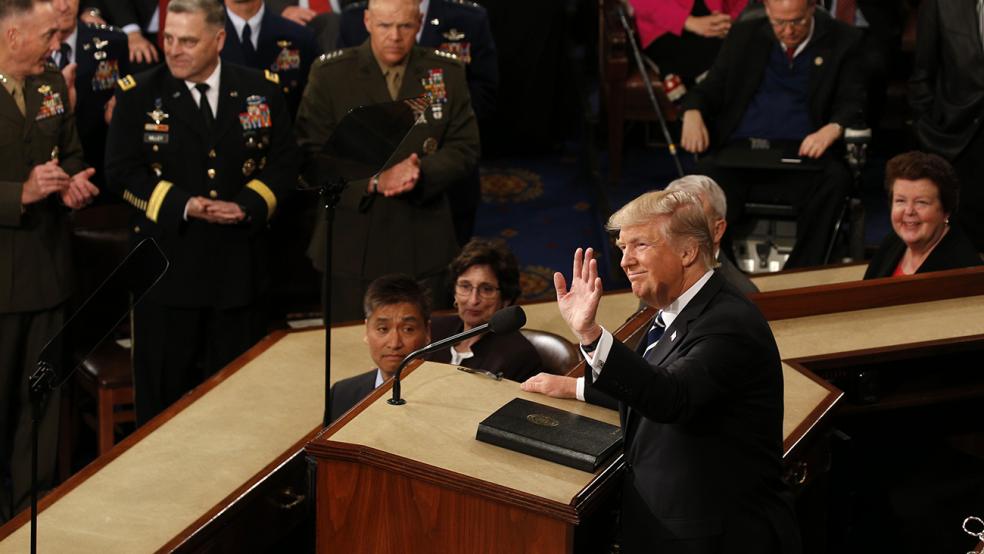Both during and after his campaign for president, Donald Trump was very focused on U.S. trade, and in particular on the fact that the country imports more than it exports, creating a net trade deficit. Despite the fact that most economists view the trade balance as a statistic that has no inherent positive or negative value in itself, Trump plainly saw the negative trade figure as some sort of national failing.
“We’re losing a tremendous amount of money, according to many stats, $800 billion a year on trade,” he said in an interview with The New York Times last year. “So we are spending a fortune on military in order to lose $800 billion. That doesn’t sound like it’s smart to me.”
Related: Will Trump’s Border Tax Anger Millions of Walmart Shoppers?
He returned to the topic on Tuesday night in his address to a joint session of Congress, labeling it one of the most “pressing problems” facing the country right now.
But just Trump has demonstrated something less than expertise when it comes to the global economy -- he reportedly made a late-night phone call to his former National Security Adviser, Michael Flynn, asking whether a strong dollar or a weak dollar was best for the economy -- his grasp of the significance of trade figures isn’t particularly solid.

Fortunately for the president, the economists at the Federal Reserve Bank of St. Louis, home to the FRED (Federal Reserve Economic Data) Blog, are happy to help. In a recent post they explained the basics of national-level trade accounting and pointed out that for a country like the U.S., there are plenty of reasons to be thankful about a trade deficit, not alarmed.
“[A] trade deficit automatically implies that the country is saving less than it’s investing,” they point out.
Related: Why Trump Needs the Border Tax to Secure Across-the-Board Tax Reform
Okay, that sounds bad on its face, but they continue, “Another way to understand this is that the rest of the world is investing in that country, thereby contributing to its production capacity.”
They key element of the post is here: “Is it bad to have a trade account deficit? If this means that your economy is booming and local production cannot keep up with demand, then no. If it implies that there is a current account deficit and, hence, foreigners are investing in your country, then also no. If this means that you can have more investment without having to save more, because the rest of the world is picking up the slack, no again. If you are worried that in the future dividends will flow abroad, then yes. But that will happen only if your economy is in good shape in the first place and will be able to afford paying such dividends.”
So, as the president and Congress go back and forth over issues of trade policy, it’s important to keep in mind that reducing the trade gap is not beneficial in and of itself, and in some cases, might actually be a net negative for the country.





